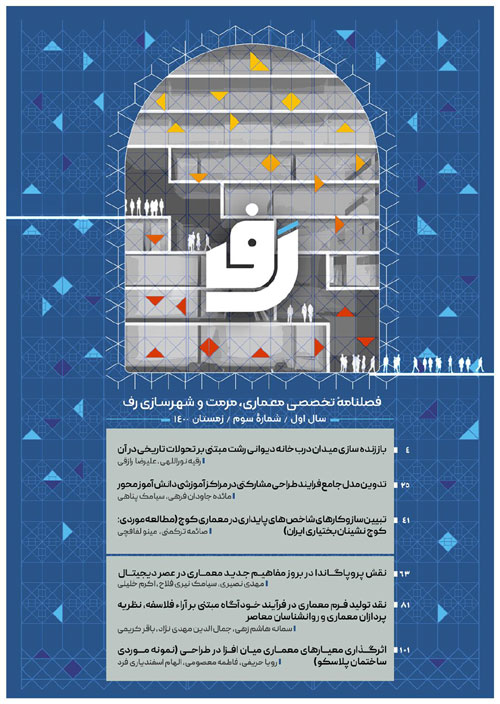Mechanisms of space production in the process of capital accumulation in the views of Henry Lefebvre, David Harvey and Edward Soja
Space has become one of the basic components in urban analysis. In fact, cities are the most important platform for the production of space and the spaces formed with investment are targeted to ensure the necessary conditions for the production and reproduction of capitalist relations. Accordingly, in this research using descriptive-interpretive method and through a systematic review of all the relevant literature, space production processes and its products are analyzed with reference to Lefebvre and Harvey intellectual system and finally socio-spatial dialectic of Edward Soja and their theoretical commonalities as the main research goal. What can be deduced from this research is that the productive relations in the city between the ruling power and the lower class are reproduced by producing new space and power tries to create a new spatial order with its production tools in the city and its spaces, in addition to a production environment, a consumption environment is formed that directly affects the daily lives of citizens. Also, the analysis of views shows that Lefebvre has inspired other thinkers by presenting his spatial trialectics; In Lefebvre’s proposed trialectic, Spatial action with spatial representation, ends in representational space, and Lefebvre by critique of everyday life in capitalism and its relation to living space in the production of space, has been able to draw class struggle into civil society strife. Similarly, in the following decades, Harvey discusses the cycles of capital accumulation, emphasizing the second cycle, and while acknowledging the role of space in the circulation of capital, believes that capital operates in a geographical and historical context that leads to the creation of various spatial forms of space in our living world. In fact, Harvey specifically see the real estate market as a secondary circuit for capital turnover, arguing that at the point where the second cycle of accumulation crisis reaches, to exit the crisis, The third cycle of accumulation is produced by relying on the production of new ideology, knowledge and awareness, which in the living space leads to the same Lefebvre ideas, and as long as the artificial environment in production is consumed by citizens, the relations of production are reproduced. On the other hand, Edward Soja, like Harvey, relying on Lefebvre’s ideas for his spatialization, re-discusses the dialectic and introduces the third term into the historical-social duality and considers three dimensions for space. In between, Many researchers have also pointed out that Soja’s spatial trialectics offers a new postmodernist angle to describe how people perceive, imagine, and reconstruct space, and that Soja is always striving to find something valuable between the first and second spaces that the title describes the third space, so can be said that Soja’s trialectics emphasizes different thinking about the meaning and importance of space and has broken the duality of material and spiritual space. finally, it can be concluded that Harvey in expressing the three circuits of capital circulation with more reliance on capitalist behavior And Soja in expression of socio-spatial dialectics and the emphasis on understanding new and different ways of spatial thinking have both been indebted to Lefebvre’s ideas.
- حق عضویت دریافتی صرف حمایت از نشریات عضو و نگهداری، تکمیل و توسعه مگیران میشود.
- پرداخت حق اشتراک و دانلود مقالات اجازه بازنشر آن در سایر رسانههای چاپی و دیجیتال را به کاربر نمیدهد.



